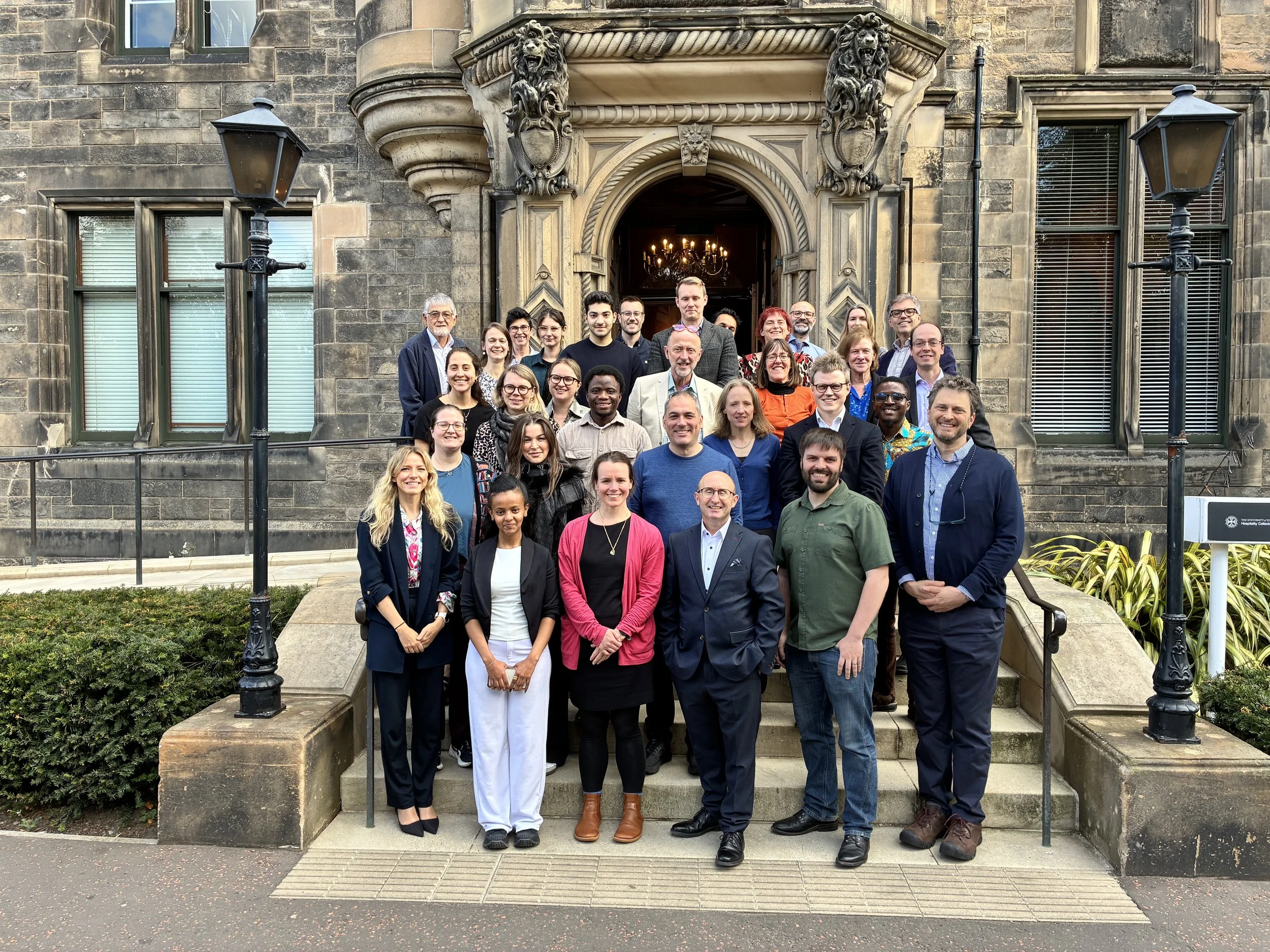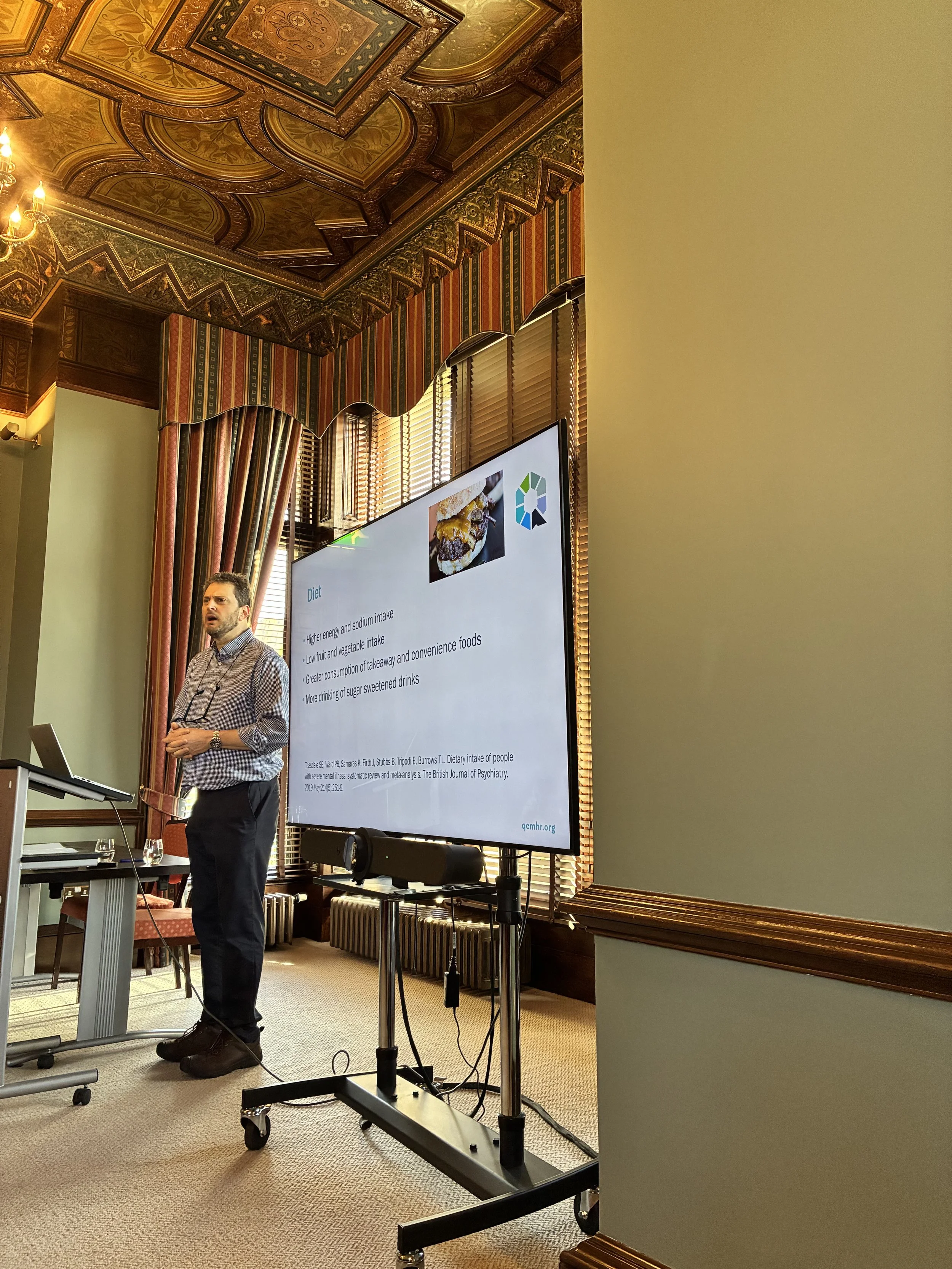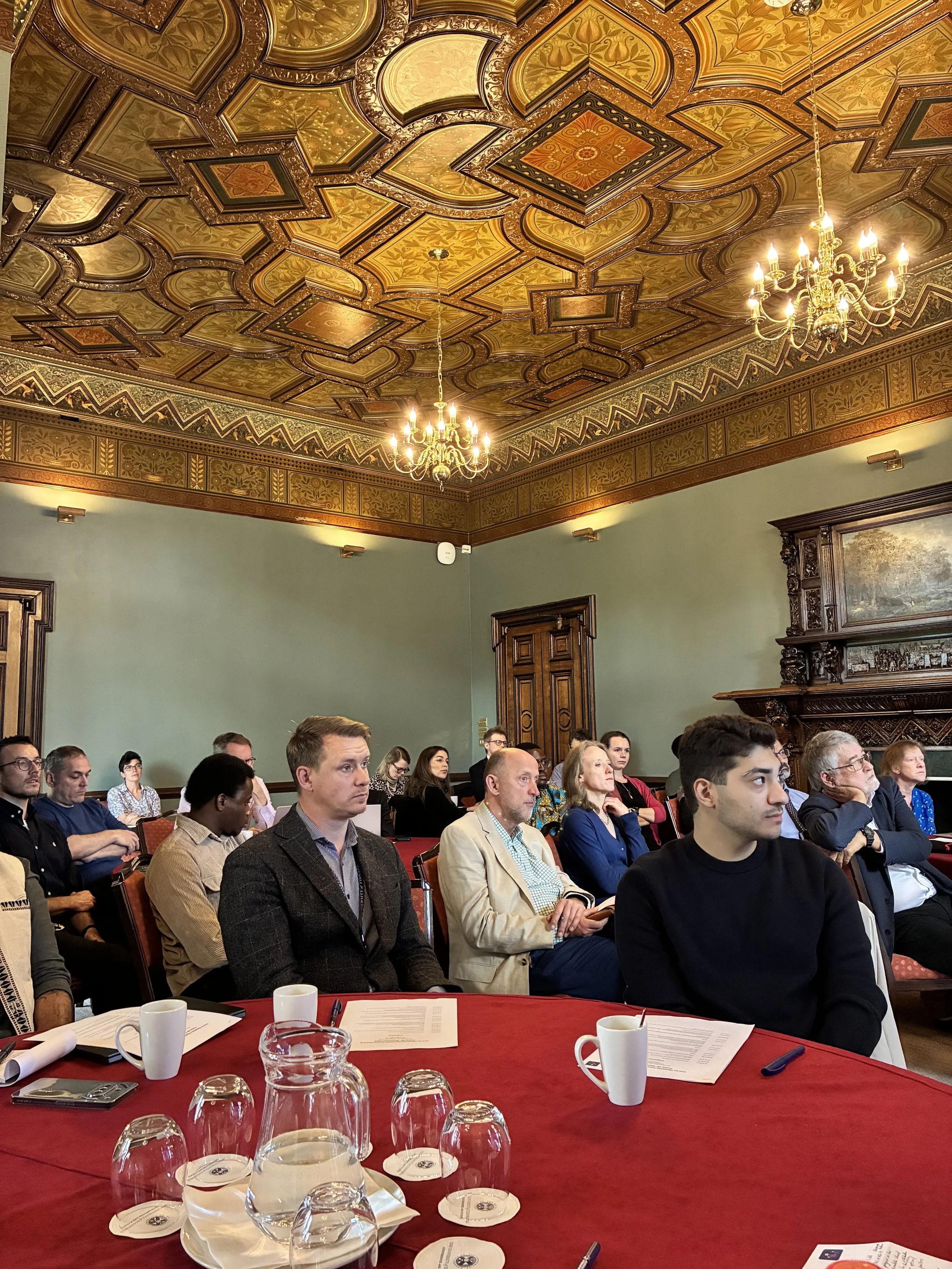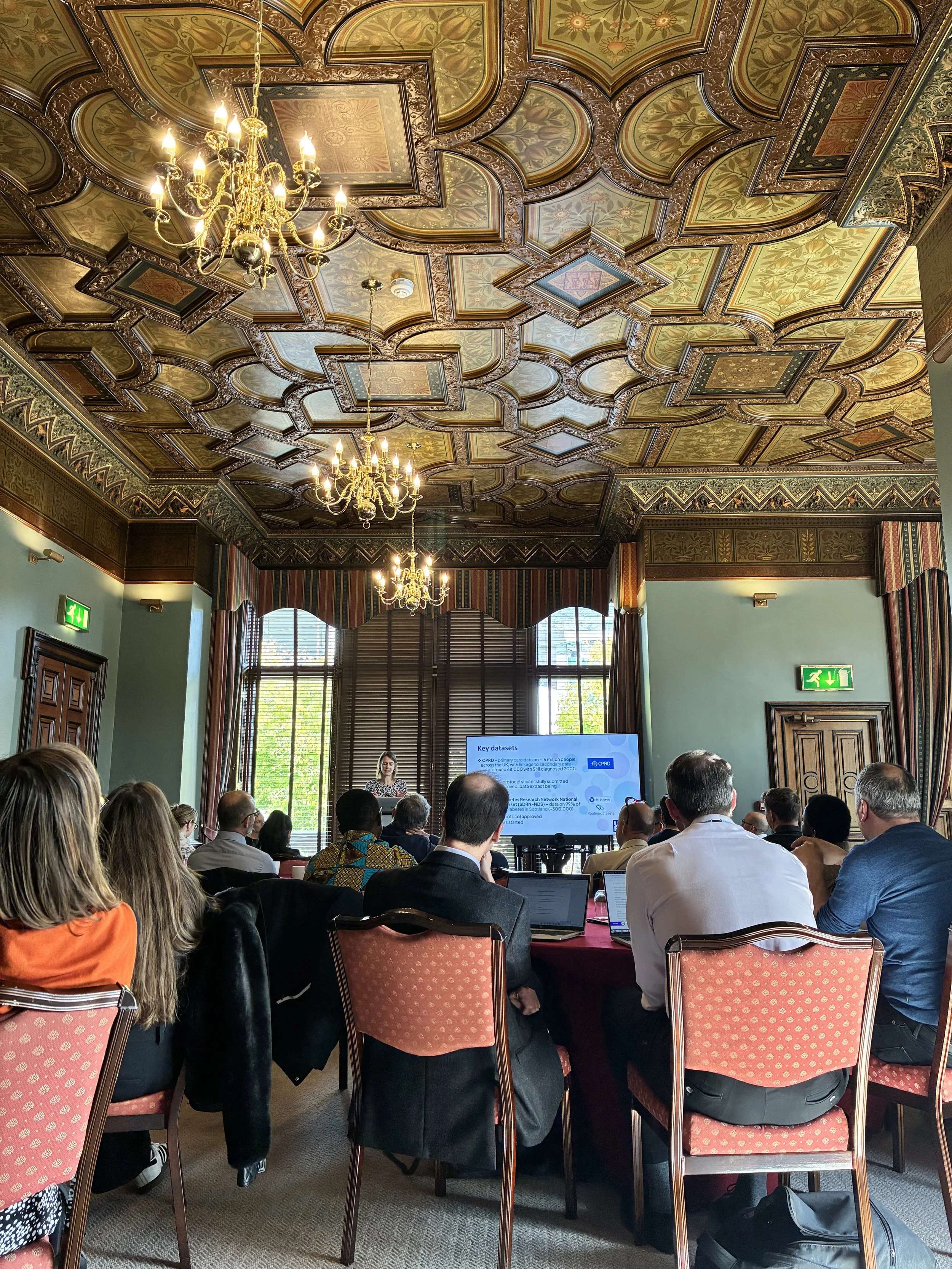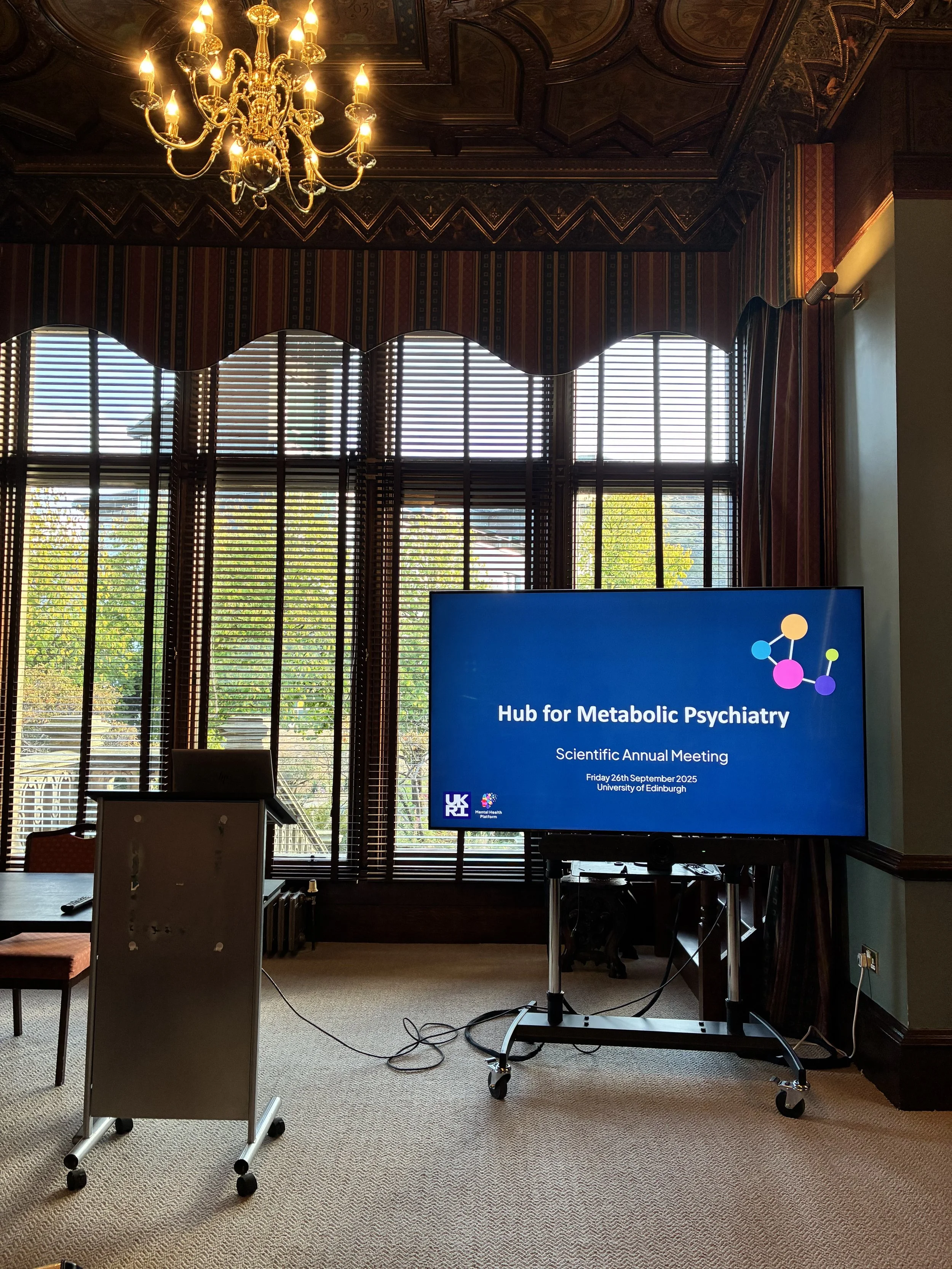World Mental Health Day 2025: Celebrating One Year of the Hub for Metabolic Psychiatry
World Mental Health Day was established on October 10th 1992 by the World Federation for Mental Health. Since then, it has been observed every year with the aim of raising awareness in the global community about critical mental health agendas through collaboration with various partners to take action and create lasting change. To mark World Mental Health Day this year, we reflect on the Hub for Metabolic Psychiatry’s first year by sharing highlights from our recent Annual Meeting.
The Hub for Metabolic Psychiatry’s Annual Meeting 2025
On a crisp, sunny autumn day in Edinburgh, researchers, clinicians, people with lived experience, and international partners came together at St Leonard’s Hall for the Hub for Metabolic Psychiatry’s first Annual Meeting — marking one year since our official launch in September 2024.
The day was an inspiring milestone: a chance to reflect on how far we’ve come, share early research findings, and set priorities for the future as we continue working to transform the understanding and treatment of severe mental illness (SMI) by taking a ‘whole body’ approach that considers the complex relationship between metabolic and mental health.
Keynote Highlights: New Frontiers in Mental and Metabolic Health
We were honoured to welcome two outstanding keynote speakers — Professor Dan Siskind (University of Queensland) and Professor Roland Stimson (University of Edinburgh) — whose talks highlighted both key research challenges and the opportunities for innovation at the interface of physical and mental health.
Professor Dan Siskind addressed the management of cardiometabolic comorbidity in people with SMI, highlighting the substantial burden of metabolic disease and premature mortality, and presenting evidence on promising interventions such as GLP-1 receptor agonists and metformin.
Professor Roland Stimson presented novel research on brown adipose tissue (BAT) and thermogenesis, exploring how changes in modern indoor temperatures may be reducing the body’s ability to generate heat. He also noted intriguing links between psychiatric medications (such as SSRIs) and reduced brown fat activity, pointing to how such medications might affect metabolism - a surprising but exciting new direction for future studies into the relationship between metabolic conditions and severe mental illness.
Together, these talks underscored a central theme: improving metabolic health can profoundly impact mental health outcomes, and vice versa.
Hub Workstreams: Driving Discovery Science
A core part of the day was the opportunity to reflect upon the progress made by the Hub’s six interdisciplinary workstreams. Presentations by representatives from each workstream showcased early findings and reported some significant achievements:
Genomics and Causal Inference: New genetic analyses are revealing shared pathways between metabolic disorders and mental illnesses, including novel findings on ketone metabolism and depression–diabetes links.
Health Informatics and Data Science: Analyses of large NHS datasets are mapping metabolic trajectories in individuals with and without SMI.
Metabolic Biomarkers: Biomarker research is underway through the METPSY study, which is using cutting-edge techniques to measure metabolic markers, as well as remote data collection tools that allow the tracking of changes in metabolic and mental health as participants go about their daily activities.
Novel Interventions: An umbrella review and priority-setting partnership to identify the research questions that matter most to people with lived experience are laying the foundations for future co-designed pilots of new metabolic interventions for SMI.
AI and Machine Learning: Supporting data collection and analysis across the Hub, this workstream is creating a strong network of knowledge and resources that can drive further progress in mental health research. FAIR data and open science principles are being embedded across the Hub, ensuring that data is secure, transparent, and reusable.
PPIE: Patient and Public Involvement and Engagement is being embedded across all workstreams within the Hub, with people with lived experience of SMI contributing to activities such as research design, priority setting, and the development of impact evaluation and digital tools. Such collaboration is made possible through the regular involvement of our Hub Lived Experience Advisory Panel (LEAP) in all aspects of our research.
Embedding Lived Experience
A highlight of the day was an interactive session led by Dr Annie Walsh (McPin Foundation) on good practice in patient and public involvement and engagement (PPIE) and the meaningful involvement of people with lived experience in research. Exploring what authentic involvement of people with lived experience really means, Dr Walsh emphasised that meaningful collaboration requires doing research with people, not to them, through power-sharing, inclusivity, and sustained relationships.
This ethos runs through all Hub activities, from lived experience input into study design to developing digital self-management tools that reflect real-world needs.
Collaboration is Key
In addition to presentations from our keynote speakers and Hub workstreams, the meeting also featured an update from the UKRI Mental Health Platform’s Director, on the MHP’s first year. Prof McIntosh highlighted how platform initiatives such as Collaboration and Innovation Awards, Early Career Fellowships, and an Industry Alliance are laying the groundwork for truly collaborative cross-hub research, cross-sector partnerships and data harmonisation across the UK.
We were also delighted to hear from Dr Alexandra Helbo (Novo Nordisk Foundation), who outlined exciting opportunities for international collaboration, particularly at the intersection of cardiometabolic and mental health research, a topic that aligns closely with the Hub’s strategic direction.
Looking Forward
As the meeting drew to a close, Hub PI, Professor Daniel Smith, led a reflective discussion on what is next for the Hub. Key priorities for the years ahead include:
Developing flagship interdisciplinary projects that knit together the Hub’s diverse workstreams
Expanding collaborations across UKRI Mental Health Platform hubs and exploring global partnerships
Championing data transparency and open research
Planning for sustainability to ensure that the Hub’s work continues to grow and make a lasting impact.
Overall, the annual meeting was a stimulating and productive event which showcased some exciting early findings and suggested that there is much more opportunity for collaborative, interdisciplinary research in the field of metabolic psychiatry on the horizon. We look forward to seeing how our diverse range of activities develop in year two, all of which we hope will have a real, meaningful impact on the lives of people living with severe mental illness.


